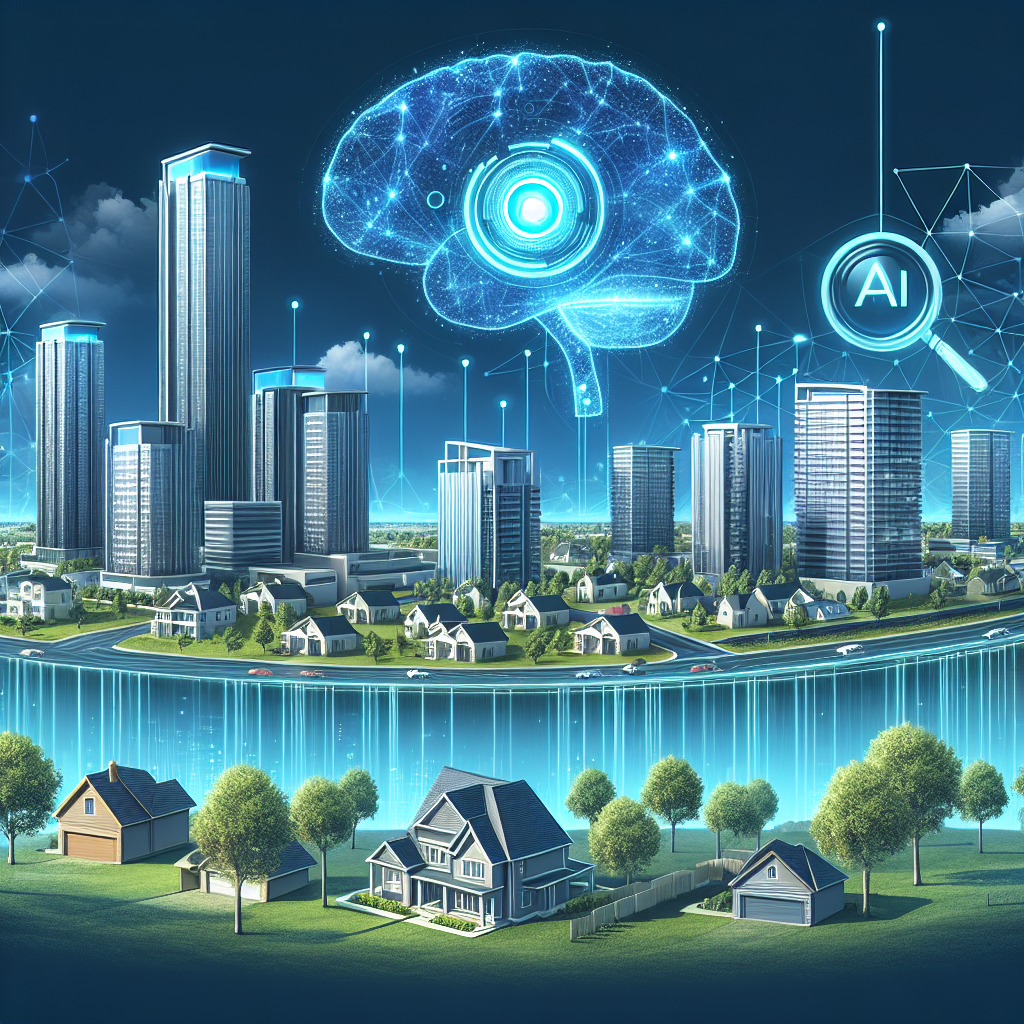The Impact of AI on Real Estate Appraisals
Artificial Intelligence (AI) has been rapidly transforming various industries, and the real estate market is no exception. One of the key areas where AI has made a significant impact is in real estate appraisals. Traditionally, real estate appraisals have been carried out by human appraisers who assess the value of a property based on various factors such as location, size, condition, and comparable sales. However, with the advancements in AI technology, automated appraisal tools have become more prevalent in the industry. In this article, we will explore the impact of AI on real estate appraisals and how it is changing the way properties are valued.
How AI is Changing Real Estate Appraisals
AI technology has revolutionized the real estate industry by providing more accurate and efficient appraisal methods. Here are some of the ways in which AI is changing real estate appraisals:
1. Data Analysis: AI algorithms can analyze vast amounts of data to provide more accurate property valuations. These algorithms can take into account a wide range of factors such as historical sales data, market trends, property features, and location to determine the value of a property. This data-driven approach allows for more precise valuations and reduces the margin for error.
2. Automated Valuation Models (AVMs): AVMs are AI-powered tools that can generate property valuations without the need for human intervention. These models use machine learning algorithms to analyze property data and generate accurate valuations in a fraction of the time it would take a human appraiser. AVMs are becoming increasingly popular in the real estate industry as they provide quick and cost-effective appraisal solutions.
3. Predictive Analytics: AI can also be used to predict future property values based on historical data and market trends. By analyzing patterns and trends in the real estate market, AI algorithms can provide insights into how property values are likely to change over time. This can be valuable information for investors, developers, and homeowners looking to make informed decisions about their real estate investments.
4. Risk Assessment: AI can help appraisers assess the risk associated with a property by analyzing various factors such as market volatility, economic conditions, and property characteristics. By using predictive analytics, AI can identify potential risks and provide recommendations to mitigate them. This can help lenders and investors make more informed decisions about lending and investing in real estate.
5. Improved Efficiency: AI-powered appraisal tools can streamline the appraisal process and reduce the time it takes to value a property. By automating repetitive tasks and data analysis, AI can free up appraisers to focus on more complex valuation tasks. This increased efficiency can lead to faster turnaround times for appraisals and ultimately benefit both buyers and sellers in the real estate market.
Frequently Asked Questions (FAQs)
Q: Can AI replace human appraisers in real estate appraisals?
A: While AI technology is becoming more advanced, it is unlikely that AI will completely replace human appraisers in real estate appraisals. Human appraisers bring a level of expertise, judgment, and intuition that AI algorithms cannot replicate. However, AI can be used to augment the appraisal process and provide more accurate and efficient valuation methods.
Q: Are AVMs as accurate as human appraisals?
A: AVMs can provide accurate property valuations in many cases, especially for standard residential properties. However, AVMs may not be as accurate as human appraisals for complex or unique properties that require a more nuanced valuation approach. It is important to use AVMs as a tool to supplement human appraisals rather than rely solely on them for all appraisal needs.
Q: How is AI impacting the role of human appraisers in the real estate industry?
A: AI is changing the role of human appraisers in the real estate industry by automating repetitive tasks, providing data-driven insights, and improving efficiency in the appraisal process. Human appraisers are now able to focus on more complex valuation tasks, such as assessing unique properties or addressing specific client needs, while AI algorithms handle the data analysis and valuation calculations.
Q: What are the potential drawbacks of using AI in real estate appraisals?
A: One potential drawback of using AI in real estate appraisals is the reliance on historical data and algorithms that may not account for unexpected market changes or outliers. Additionally, AI technology may not be able to assess the intangible qualities of a property that human appraisers can consider, such as the overall condition or unique features of a property.
In conclusion, AI technology is transforming the real estate industry by providing more accurate, efficient, and data-driven appraisal methods. While AI-powered tools such as AVMs are becoming increasingly popular in the industry, human appraisers still play a crucial role in providing expertise, judgment, and intuition that AI algorithms cannot replicate. By leveraging the benefits of AI technology and human expertise, the real estate appraisal process can be enhanced to provide more accurate and informed property valuations.

